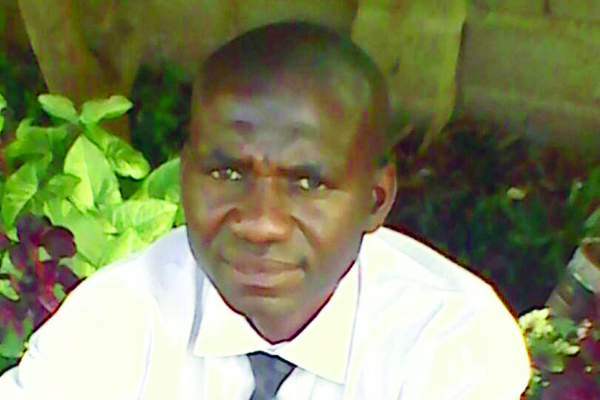
Bulawayo province proportional representation (PR) legislator Nomvulo Mguni (Thokozani Khupe-led MDC-T) won her way into Parliament through the PR quota system, which gave 60 women a free ticket into the National Assembly.
By NIZBERT MOYO
The following are excerpts of an interview between Southern Eye correspondent Nizbert Moyo (SE) and Nomvulo Mguni (NM) on her role as a PR legislator.
SE: Who is Nomvula Mguni and how did you join politics?
NM: I was born in a family with a political background. In 2006, I began taking a serious interest in politics and participated in the referendum.
After that I joined full time opposition politics under MDC-T. In 2011, I rose through the ranks to become deputy secretary of the Women’s Assembly in Bulawayo province.
In 2015, when the party decided to fire some “dissidents” together with then secretary-general Tendai Biti, I was selected to be a proportional representation MP.
Currently, I am an aspiring candidate for the Bulawayo Central constituency under the MDC-T led by Thokozani Khupe. I have insisted that we should stick to the Constitution in order for our country to develop.
- Chamisa under fire over US$120K donation
- Mavhunga puts DeMbare into Chibuku quarterfinals
- Pension funds bet on Cabora Bassa oilfields
- Councils defy govt fire tender directive
Keep Reading
We need devolution of power to be implemented and each province should be allowed to manage its own natural resources. Of course, we have the central government system, but it is taking out a lot of funds from the provinces. I also feel that centralising props up corruption.
SE: What have you offered to the province as a PR MP?
NM: There are no resources for PR MPs. Our role is not clearly defined. At one time, we were nicknamed “Baccosi MPs” because we had no constituencies.
It should not be about having many women in Parliament, but that those women should be given specific roles.
We should be seen helping women and children. I specifically have been helping Khupe in her cancer awareness programmes.
I have been to Zambia to see how they conduct their cancer treatment. Cancer treatment and blood in Zambia are free compared to Zimbabwe where blood is very expensive but Zimbabwe is the one which taught Zambia how to process blood. This does not make sense.
We made a report to the government and recommended that they should make sure that blood is made available for free so as to reduce high mortality rates.
We do not have a Constituency Development Fund, although we had made a request with the former Finance minister Ignatious Chombo to provide it to PR legislators.
Unfortunately, he was fired before the issue could be finalised.
I was part of the Parliamentary Portfolio Committee on Justice and we conducted public consultations throughout the country, which covered different Bills.
I think it is better to be a constituency legislator than being a PR MP. People expect MPs to develop their constituencies, but development should come through local authorities.
We need to stick to the constitution which stipulates that there should be provincial councils where MPs and councillors sit and plan together on how to develop provinces.
There are three border posts in the region, Victoria Falls, Beitbridge and Plumtree. There is also coal in Hwange, to mention a few resources in the region.
If these resources are made to benefit people in their respective provinces, it makes them more responsible, accountable, and brings a sense of belonging, as well as create competition among provinces in terms of development. Centralisation causes corruption.
Bulawayo East constituency has bad roads. There is decay in the health system in the province. If the city has different sources of income, it would not charge exorbitant rates.
An MP’s role is to make sure that he or she puts good policies in place that promote development, as well as strengthening oversight by ministries and Cabinet.
Another role is the representative one, which requires an MP to consult people first on things that affect them in their day to day lives. Generally, an MP is the servant of the people.
SE: Since you do not have a constituency, how do you meet people?
NM: I meet people on a one-on-one basis, and through party structures. Others approach me when they feel they need my assistance.
SE: What can you say of the five years that you have been in Parliament?
NM: I served for three years in Parliament, it was a learning process. I enjoyed working in Parliament portfolio committees, where I gained some experience in talking in front of the people because Parliament can be scary, especially during the first days.
Parliamentarians should be taught how to debate, not to make noise. It is not about noise but the content, we need guidelines.
There must be some basic level of education for parliamentarians. How can one make a lawmaker when he or she is not able to express himself or herself properly.
I have listened to debates in parliaments of other countries and they are different.
The level of understanding by parliamentarians is different and that is why at times there is a lot of noise in Parliament, not that I am denigrating others, but I think education is important.
SE: What can you tell other aspiring women politicians?
NM: They must learn to read and research so that they can contribute positively in Parliament.
They must give themselves time to improve and develop themselves; one has to be computer literate.
An MP should be in touch with the electorate and be accessible.











